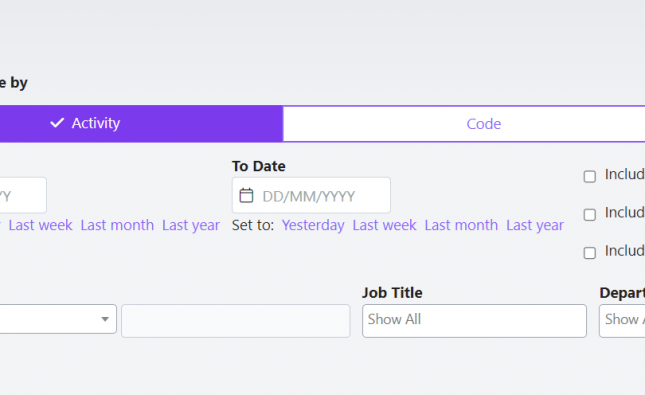Work-related stress can lead to many health problems. It is one of the leading causes of absence from work and long-term sick leave for employees. When our stress is allowed to continue unchecked, it can lead to depression and anxiety, which can have devastating effects. According to HSE’s Labour Force Survey, 17.9 million working days were lost due to work-related stress, depression, or anxiety in 2019/2020, this equated to an average of 21.6 days lost per person suffering.
Controlling work-related stress is a shared responsibility between employers and employees themselves. It can help employees cope if they know how to recognise the signs of stress in themselves and the steps they can take to control it.
What is stress?
HSE defines stress as ‘the adverse reaction people have to excessive pressures or other types of demand placed on them’. Employees feel stress when they can’t cope with pressures and other issues.
Symptoms of stress
Everyone experiences stress differently, but when it starts to affect your health and wellbeing, you must learn how to manage it.
- Feelings of constant worry or anxiety
- Feelings of being overwhelmed
- Difficulty concentrating
- Mood swings or changes in your mood
- Irritability or having a short temper
- Difficulty relaxing
- Depression
- Low self-esteem
- Eating more or less than usual
- Changes in your sleeping habits
- Using alcohol, tobacco or illegal drugs to relax
- Aches and pains, particularly muscle tension
- Diarrhoea and constipation
- Feelings of nausea or dizziness
- Loss of sex drive
Here are some ways you can manage personal stress:
1 – Understand the root cause of stress
Stop and think about the real reason why you feel stressed. Do you have little time to complete a project ahead of a deadline? Was this passed onto you with little to short notice? Then there are two issues here: one is time management – feeling stressed because you know it might be difficult to complete the task within the deadline, and the second is communication – being given a task to complete within an unrealistic timeframe and at short notice with no prior heads-up.
2 – Reduce unnecessary stress
- Learn to say no
We often want to be ‘yes’ people both professionally and personally because it’s human nature to want to be liked or help one another. But you can only bite off as much as you can chew. Understand how much time a task will take and whether the workload is feasible. If not, simply say you won’t be able to do it within that given timeframe and ask for an extension or find out if somebody else on the team has the availability to do it instead.
- Review your to-do list
If you have too much on, work with your line manager to review your to-do list. Analyse your deadlines and how long each task will take and prioritise them in order of urgency.
- Learn to control the situation
Figure out if you can reduce the stress in a particular situation. For example, if you constantly get stuck in traffic and worry about getting to work on time, then work backwards. Wake up earlier to make sure you leave the house earlier, allowing time for any traffic on the journey and still making it to work on time.
3 – Develop your coping strategies
- Exercise
Regularly exercising, even just going for a walk, is a great way to relax your body and take your mind off things. Allowing oxygen to flow into your body will help improve your mood.
- Relax your muscles
When you’re stressed, it’s normal for muscles to tense up, leading to aches and pains. Consider loosening up the muscles by doing yoga (stretching muscles), having a massage, or even relaxing in a hot bath.
- Deep breathing exercises
When you suffer from stress or even anxiety attacks, deep breathing exercises work well to help reduce the tension and improve the mood. Try playing mindfulness music in the background and learn to take slow deep breaths in and out.
- Eat healthier
Eating a well-balanced diet should be a staple requirement in our daily lives. Although we may enjoy indulging in fast food, as long as it’s not a regular occurrence, then it should be fine. Your meals should consist of a good variety of fruit and vegetables since eating better can help reduce stress. Your body will also feel better in itself; more alert and full of energy.
- Take a break
Your body can only go so fast before it crashes. Schedule some regular breaks for your body to rest and be still. This can involve going for a slow walk in nature, reading a book in the park, or even doing yoga.
- Make some time to do an activity
It’s important to schedule some ‘you’ time and take part in activities you enjoy to relieve stress. Try playing a team sport such as football or tennis, or release stress through a martial art such as kickboxing. It could even be a solo activity such as solving puzzles such as sudoku or doing some painting.
- Talk to someone about your worries
One of the most important ways to manage and reduce your stress is by talking to someone. Often, by bottling in problems, they seem worse than they are, but talking to someone allows us to voice those concerns. Speak with someone you feel comfortable with, whether it’s a manager, a colleague, family, friends or seek professional help with a therapist.
While these are some ways to manage your stress, check out our course on Stress Management for Individuals and our Managing Personal Stress Challenge to help guide the way. Remember to remain positive, talk to someone and get professional help from a doctor if stress is causing constant issues and worries. Have a look at the rest of the courses offered in our wellbeing collection for other courses.


